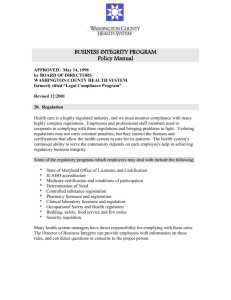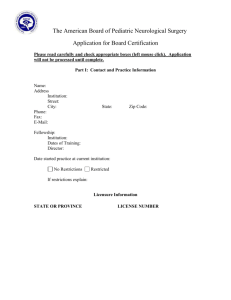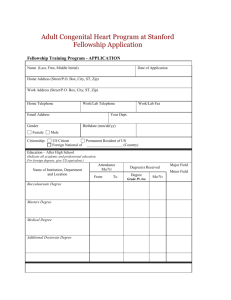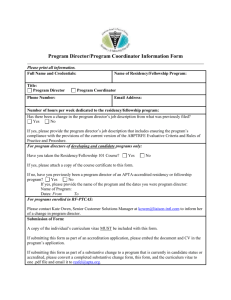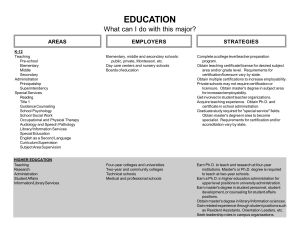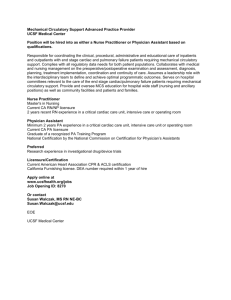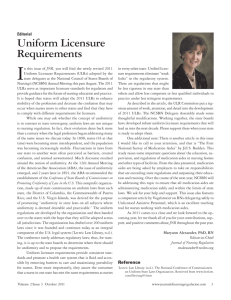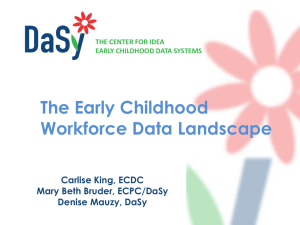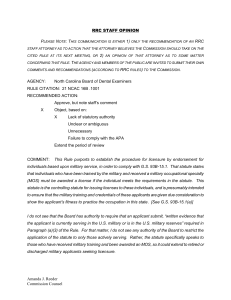comp2_unit2_self-assess_key
advertisement
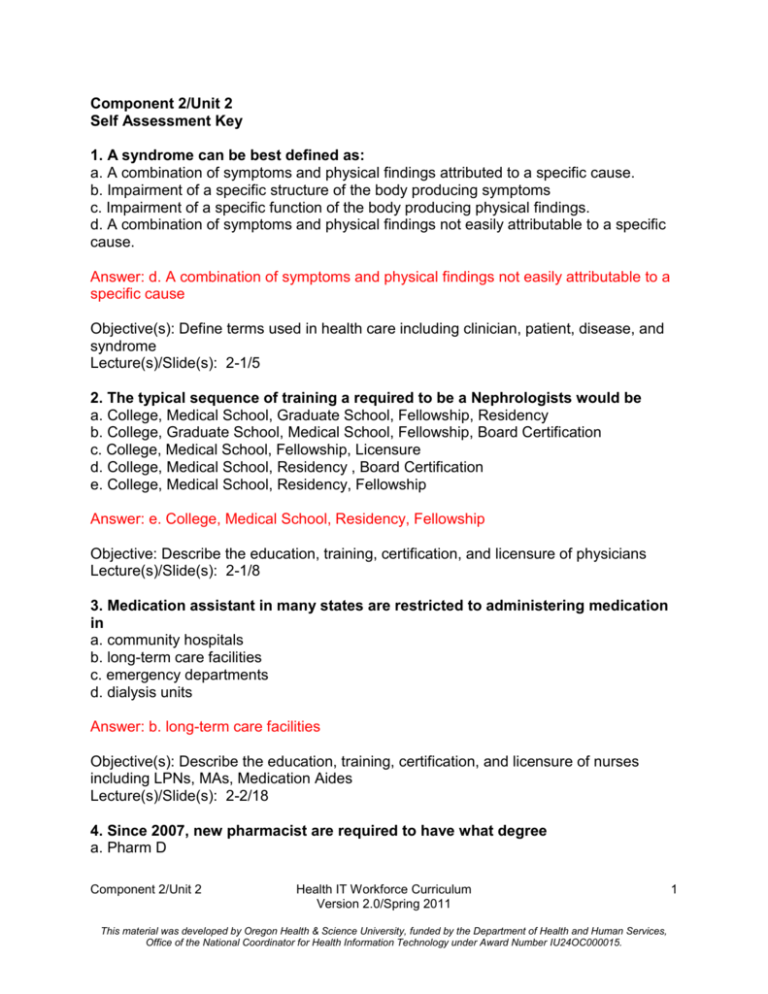
Component 2/Unit 2 Self Assessment Key 1. A syndrome can be best defined as: a. A combination of symptoms and physical findings attributed to a specific cause. b. Impairment of a specific structure of the body producing symptoms c. Impairment of a specific function of the body producing physical findings. d. A combination of symptoms and physical findings not easily attributable to a specific cause. Answer: d. A combination of symptoms and physical findings not easily attributable to a specific cause Objective(s): Define terms used in health care including clinician, patient, disease, and syndrome Lecture(s)/Slide(s): 2-1/5 2. The typical sequence of training a required to be a Nephrologists would be a. College, Medical School, Graduate School, Fellowship, Residency b. College, Graduate School, Medical School, Fellowship, Board Certification c. College, Medical School, Fellowship, Licensure d. College, Medical School, Residency , Board Certification e. College, Medical School, Residency, Fellowship Answer: e. College, Medical School, Residency, Fellowship Objective: Describe the education, training, certification, and licensure of physicians Lecture(s)/Slide(s): 2-1/8 3. Medication assistant in many states are restricted to administering medication in a. community hospitals b. long-term care facilities c. emergency departments d. dialysis units Answer: b. long-term care facilities Objective(s): Describe the education, training, certification, and licensure of nurses including LPNs, MAs, Medication Aides Lecture(s)/Slide(s): 2-2/18 4. Since 2007, new pharmacist are required to have what degree a. Pharm D Component 2/Unit 2 Health IT Workforce Curriculum Version 2.0/Spring 2011 This material was developed by Oregon Health & Science University, funded by the Department of Health and Human Services, Office of the National Coordinator for Health Information Technology under Award Number IU24OC000015. 1 b. Bachelor’s Degree in Pharmacy c. PhD in Pharmacology d. Master’s Degree in Pharmacy Answer: a. Pharm D Objective(s): Pharmacists education, training, certification, licensure and roles Lecture(s)/Slide(s): 2-3/6 5. The biggest difference between Counselors, MSW’s, Psychologist, and Psychiatrist? a. Ability to perform individual counseling b. Ability to perform group counseling c. Ability to specialize in specific areas d. Ability to prescribe medication Answer: d. Ability to prescribe medication Objective(s): Discuss the education, training, certification, licensure, and roles of mental health professionals; Discuss the education, training, certification, licensure, and roles of social workers and case managers Lecture(s)/Slide(s): 2-3/24 Component 2/Unit 2 Health IT Workforce Curriculum Version 2.0/Spring 2011 This material was developed by Oregon Health & Science University, funded by the Department of Health and Human Services, Office of the National Coordinator for Health Information Technology under Award Number IU24OC000015. 2
